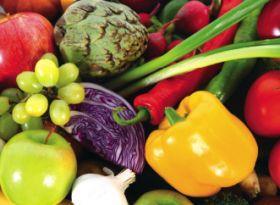
The International Fruit and Vegetable Alliance (IFAVA) and the International Alliance of Associations and Movements 5 a day (AIAM5), have announced they are joining forces to form the new Global Network for the Promotion of Fruit and Vegetable Consumption.
The 20 countries currently involved are Argentina, Bolivia, Brazil, Canada, Chile, Colombia, Costa Rica, Cuba, El Salvador, France, Hungary, Mexico, Nicaragua, New Zealand, Poland, Portugal, Spain, Uruguay, USA and Venezuela.
The new network brings together both developed and developing countries involved in the promotion of the consumption of fruit and vegetables worldwide to improve public health, achieved by sharing sound science and best practice.
As part of the scheme, French member, Aprifel, will be editing the new Global Fruit and Vegetable Network newsletter, which will be produced in English, Spanish and French.
The two groups have been collaborating since 2012, and IFAVA agreed to join AIAM5 as full members in March at the Produce For Better Health Foundations Conference held in the US.
The member countries agreed to make the announcement in Milan, Italy at last week's seventh edition of the EGEA Conference organised by Aprifel.
The conference was seen as the perfect platform for the announcement as it focused on the role of fruit and vegetables to promote a healthy diet, environment and economy to an international audience.
'United Fresh is excited to see the two organisations come together to form a stronger voice for fresh fruit and vegetables globally,' said United Fresh New Zealand Incorporated general manager, and founding member of IFAVA, Paula Dudley. 'We look forward to working closer with the World Health Organisation to ensure the consumption of fruit and vegetables moves up the international agenda for public health.'
There is evidence that fruit and vegetable consumption decreases the risk of cardiovascular diseases, obesity and diabetes, as well as certain types of cancer. Diet and physical inactivity accounts for over 10 per cent of all global disabilities with fruit and vegetables being dominant factors. This means that billions could be saved each year with disabilities markedly reduced if fruit and vegetable intakes reached the WHO recommended amount of at least 400g per day.
In their efforts to reduce the prevalence of NCDs, most developed, as well as developing countries and governments, acknowledge the World Health Organization’s (WHO) declaration for increased fruit and vegetable consumption. Yet national fruit and vegetable dietary recommendations are often at odds with the same country’s agricultural or food policies.
Representatives of the new network discussed the group’s objectives and their intention to work with the WHO at both a national and international level in the promotion of fruit and vegetable consumption.
A road map and framework with global strategies and goals will be drawn up at the next General Meeting, on 18 and 19 November, where more than 30 countries will gather for the XI International Congress of Promotion to the Consumption of Fruits and Vegetables in Mérida, Yucatán, Mexico.



